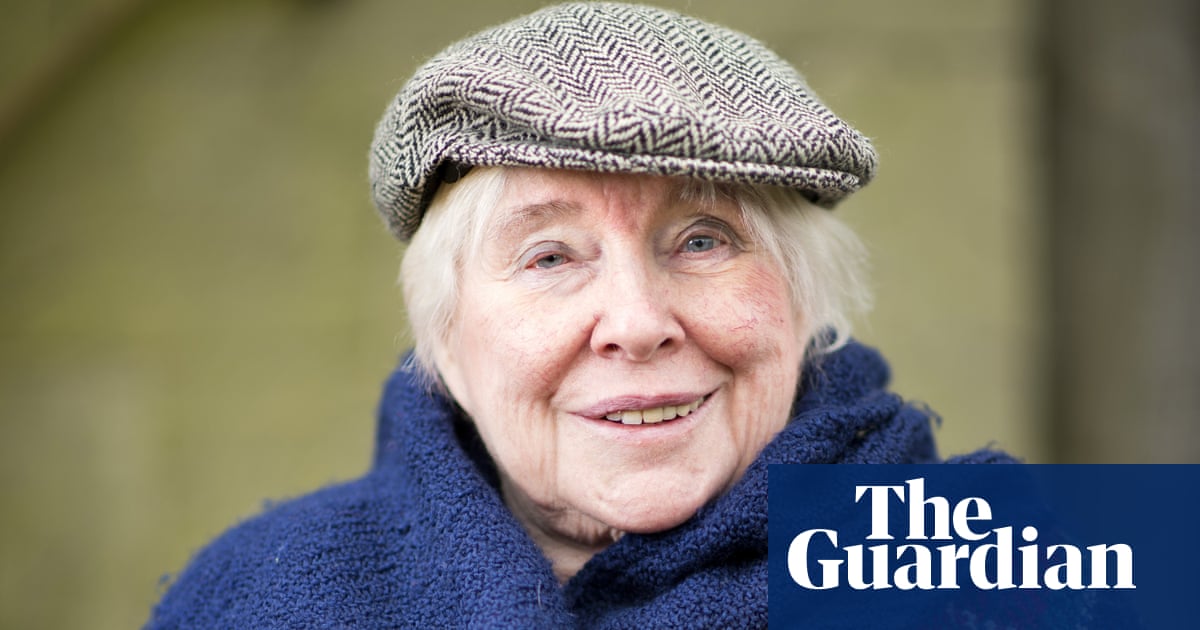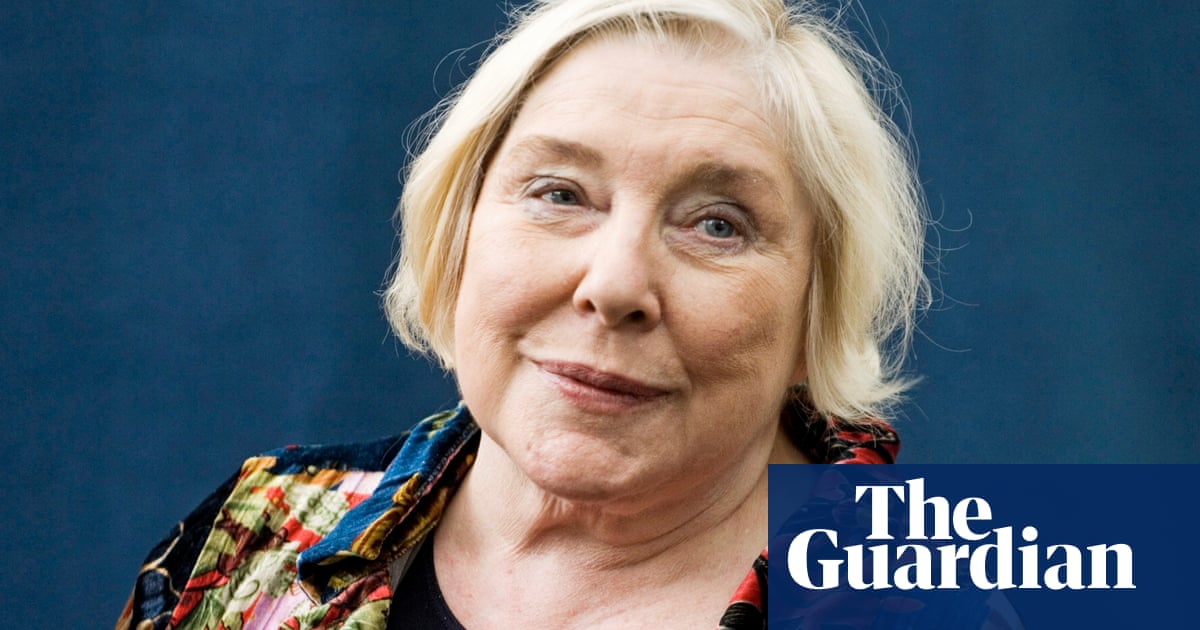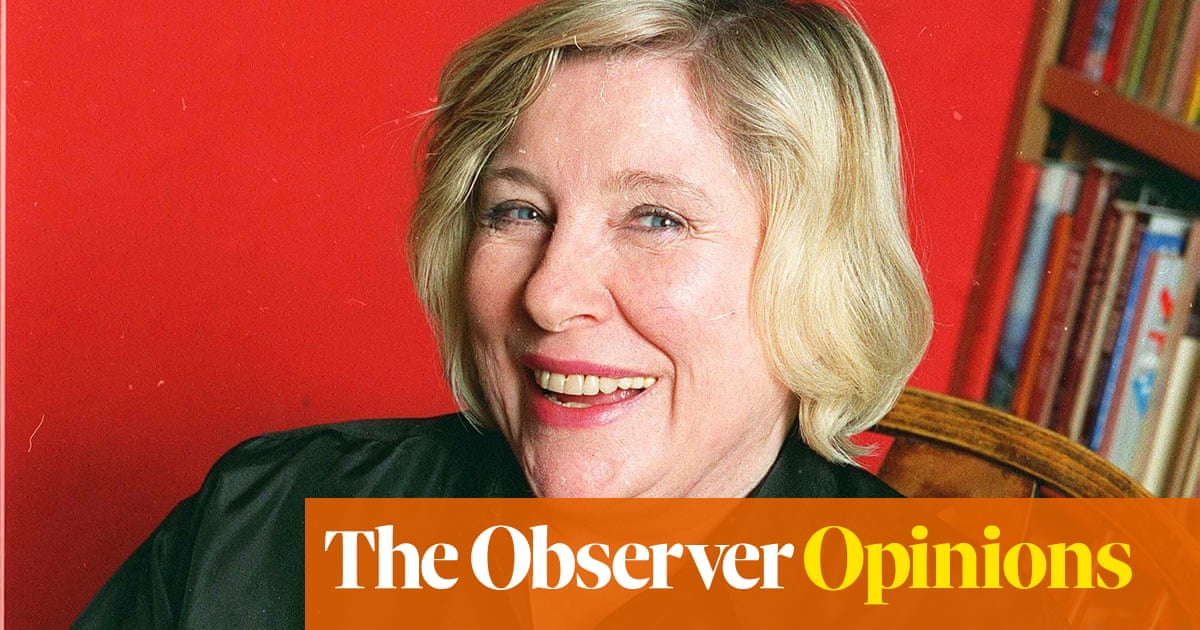
‘Ihave an easy disposition and a gregarious nature,” explained Fay Weldon in response to a question about how to navigate life in the public eye from Hilary Mantel, with whom she was in conversation at Bath Spa University in 2014. Film of the event is online, and there is something wonderful about seeing the pair, originals both, laughing in their academic gowns, so unalike in many respects but both so intently focused on their work, and on their keen apprehension of the binds and double-binds in which women have found themselves through the ages. Mantel had observed that Weldon coped with attention “so gracefully”, to which the author revealed that “it’s an act, but it’s not an act … oddly enough, you tell the truth”. (Mantel replied, with comically exaggerated mock disbelief: “Well, this is an innovation, I must say!”)
The idea of putting on an act but telling the truth as you do it might provide a clue to thinking about Weldon, whose death at the age of 91 has prompted immense sadness in a wealth of writers who enjoyed her vivid company and also felt enormously encouraged by both her warm attentiveness and her example. Just as affected have been her readers, many of whom have been remembering the first time they encountered the liberating power and irreverence of novels such as Puffball, The Cloning of Joanna May and The Lives and Loves of a She-Devil.
That apparent contradiction – cloaking and revealing yourself simultaneously – appears to have had its roots in her early life, which might be characterised as erratic and which was punctuated by the break-up of her parents’ marriage, and in her journey towards writing. “The more unobserved you are, I realise,” she wrote in her 2002 memoir, Auto Da Fay, “the better the finished results. It’s other people’s doubts that hamper you.” Describing the very beginning of her novelistic career, when she wrote by hand because the “antisocial clatter” of the typewriter annoyed her husband, she recalled: “I would write while pretending to read, or sit on the stairs and do it, so I would not be detected. It was childish and absurd, but one learns best, and writes best, in a state of defiance.”
Evading the threats posed by others and remaining defiant suffuses Weldon’s fiction, in which her heroines – often the “overweight, plain women” she saw as the silent and overlooked majority – extricate themselves from dead-end situations by channelling the apocalyptic power of the betrayed and rejected. Take 1996’s Worst Fears, for example, in which the actor Alexandra, whose husband, Ned, has died suddenly while she is on stage as Nora in A Doll’s House, finds herself surrounded by his lovers, a first wife hellbent on evicting her, an unhelpful brother-in-law and sundry other malcontents (including an interloper who looks like “a cross between a vulture and Ivana Trump”). The sense is of a woman besieged, and in the process of having everything removed from her until she is as nothing; but who finds that the best response to one’s worst fears coming true is to thank those wielding the pitchforks and fight back. Suffice to say that little remains standing by the novel’s end.
Weldon wrote of the moment when women began to free themselves from the marriage market and its attendant credo that their central occupation should lie in attracting and retaining a man; but she was also thoroughly wised-up to the folly of believing that centuries of women making themselves enticing and amenable to men as an act of survival could disappear overnight. Her fiction was consequently lurid, macabre, fantastical, filled with shape-shifting protagonists gunning for revenge, destruction and, sometimes, rebirth; one might see connections with the reimagined fairy tales of Angela Carter, or the malevolent morality plays of Muriel Spark.
One might also remember that she had a literary heritage: her grandfather, Edgar Jepson, was a mystery writer, as was her uncle Selwyn, and her mother, Margaret, wrote both under her own name and the pseudonym Pearl Bellairs, taken from an Aldous Huxley character. I was lucky enough to interview Weldon on a number of occasions, the last being a few years ago for a radio documentary about the great adventure writers of the past. The producer and I drove to Weldon’s home in Dorset; she was then in her 80s and with a voice slightly fainter but no less animated than previously, enthusing about the enduring appeal of a truly great yarn. She should know; she wrote enough of them.












